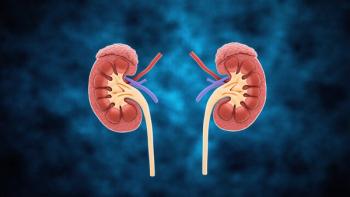
New Biomarker Panel Can Assess Risk of CKD Progression in Children
Researchers at Yale School of Medicine have determined that a panel of biomarkers can help physicians better understand kidney disease in children.
Yale School of Medicine researchers have identified a biomarker panel that improves the assessment of chronic kidney disease (CKD) progression in children. In a
Key disease risk factors are diabetes, high blood pressure, heart disease, and a family history of kidney disease.
Understanding the risk for progression in kidney disease is important because it can lead to kidney failure, requiring dialysis or kidney transplant. Researchers have sought to improve the prediction of disease progression for improved clinical monitoring and clinical trial enrollment.
“While current clinical biomarkers only partially capture the variability of CKD progression, this research demonstrates that a combination of biomarkers that represent key pathways of kidney health can significantly improve risk prediction,” Jason Greenberg, M.D., MHS, associate professor of pediatrics (nephrology) and a member of the Yale Clinical and Translational Research Accelerator (CTRA), said in a news release.
The current research built on previous work by Greenberg and his colleagues as a part of the Chronic Kidney Disease (CKD) Biomarkers Consortium, which had examined biomarkers of kidney tubule health, injury, dysfunction, and inflammation.
The current study included almost 600 children with chronic kidney disease aged 6 months to 16 years from the Chronic Kidney Disease in Children (CKiD) Cohort Study. The investigators measured biomarkers in plasma and urine to develop a biomarker panel that significantly improved the prediction of CKD progression.
The
In the Yale study, researchers, led by Greenberg, used regression tree–based statistical modeling to determine the most informative predictors of pediatric CKD. In the final biomarker panel, the urine albumin/creatinine ratio, urine epidermal growth factor/creatinine ratio, plasma kidney injury molecule-1, and estimated glomerular filtration rate were the most predictive biomarkers, helping to identify the children at highest risk of disease progression.
“For kids and parents, knowledge of the risk of progression will allow those at higher risk to engage in preventative strategies, and those at lower risk to decrease the cadence of their medical visits, leading to less disruption of critical childhood experiences,” F. Perry Wilson, M.D., MSCE, associate professor of medicine (nephrology) and public health (chronic disease epidemiology) and director of the Yale Clinical and Translational Research Accelerator, said in the news release. “Better predicting outcomes in pediatric CKD demonstrates the power of personalized medicine.”
Newsletter
Get the latest industry news, event updates, and more from Managed healthcare Executive.























